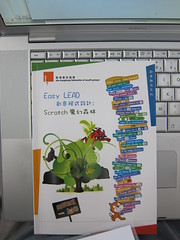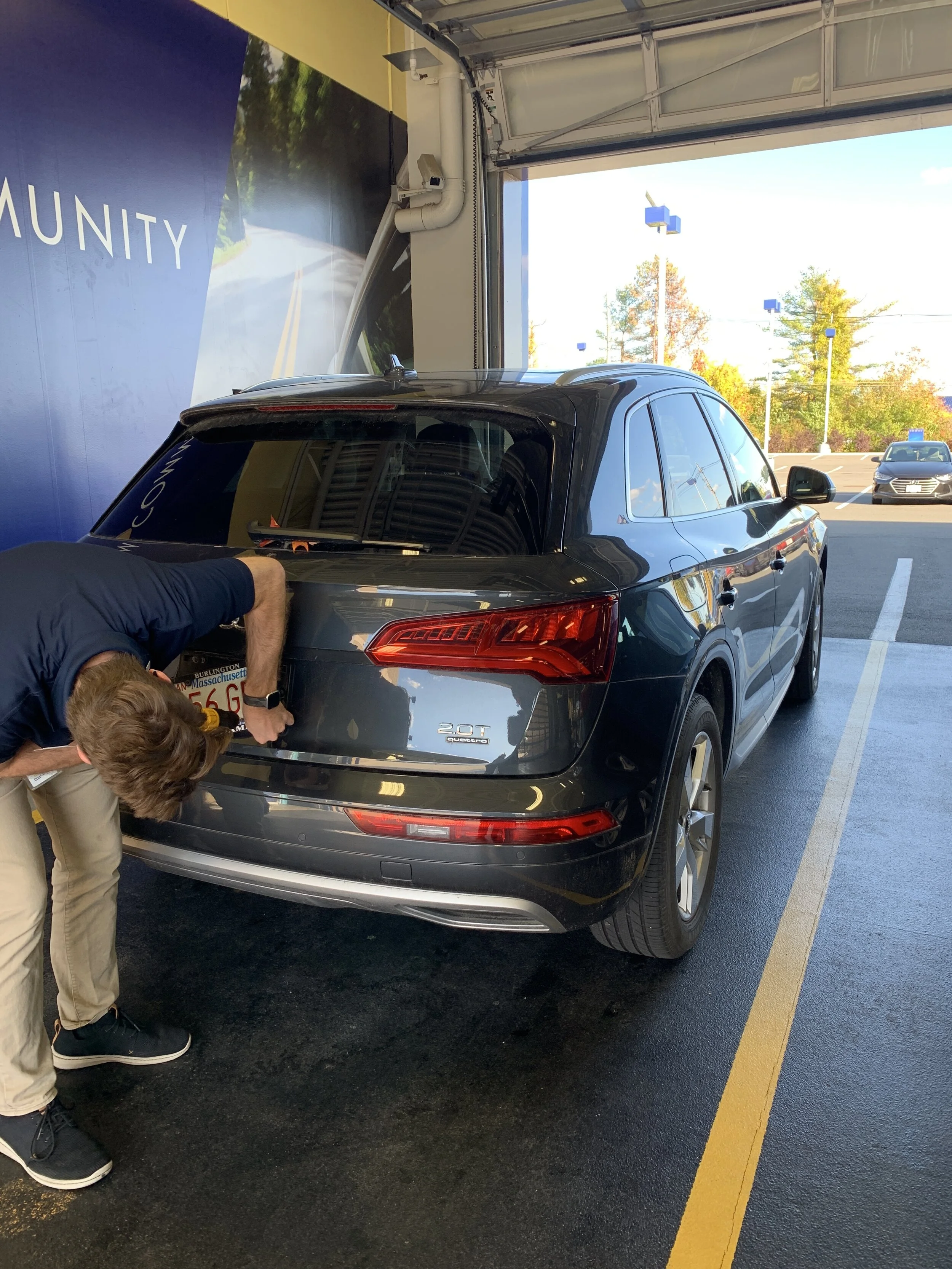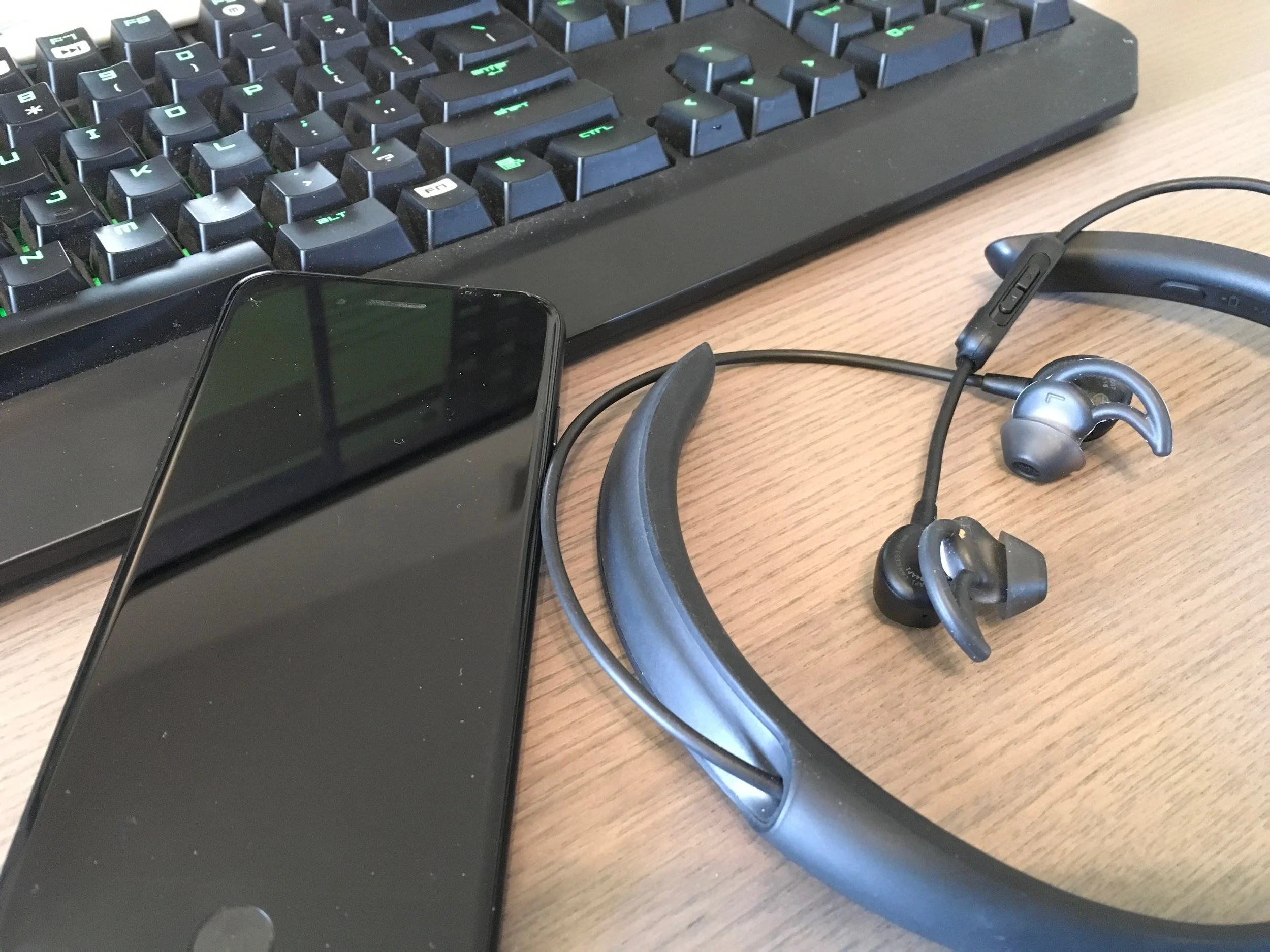 LifeHacker wrote a piece on Plan Your Free Online Education at Lifehacker U: Summer Semester 2012. The Educational game design class that I am taking at MIT is listed as one of the course! Now they are linking to the free open courseware version which is three years old. This is the link to the actual class. Hopefully our projects will be posted on the class website soon for the world to see!
If you want to find out more about the class experience, I wrote about it here, on our work with Portal 2.
LifeHacker wrote a piece on Plan Your Free Online Education at Lifehacker U: Summer Semester 2012. The Educational game design class that I am taking at MIT is listed as one of the course! Now they are linking to the free open courseware version which is three years old. This is the link to the actual class. Hopefully our projects will be posted on the class website soon for the world to see!
If you want to find out more about the class experience, I wrote about it here, on our work with Portal 2.
Group Class Project and a Portal Weighted Companion Cube
 It has been many years since I have to do a group project in school. It was always painful doing group projects in the MBA days. Working students schedule differs from full time students. Expectation is different. For this Games for Education class, there are four group projects. Yes -- FOUR!
For the first project, we are to design a curriculum around the game Portal 2. Our project ended up pretty good. And I was pleasantly surprised how well the group project dynamics worked out. The working notes and final paper were written collaboratively using Google docs. Wished we had Google docs back in the MBA days?
It has been many years since I have to do a group project in school. It was always painful doing group projects in the MBA days. Working students schedule differs from full time students. Expectation is different. For this Games for Education class, there are four group projects. Yes -- FOUR!
For the first project, we are to design a curriculum around the game Portal 2. Our project ended up pretty good. And I was pleasantly surprised how well the group project dynamics worked out. The working notes and final paper were written collaboratively using Google docs. Wished we had Google docs back in the MBA days?
Expectation
I do not know what is the expectation of the professor in terms of the projects. Looking at our own project, and the other three projects in the class, I think everyone could have done a little more. All the concepts are good but the presentation, and in our case our paper, could be better. I wonder if this is because this particular course can be part of a student's HASS requirement -- Humanities, Arts, and Social Sciences. So in most case it is not a major for a student? Personally I wish I had something like this when I was at Imperial. It would have given me a great introduction to the real world. But in this case the students maybe viewing this as a lighter class? Or that because it is much less of an engineering class, and everyone else is more used to engineering class work.
Portal Cube
Because our project is on the game Portal 2, I have decided to locate a 3D printed portal cube for use in the presentation. We use the cube as a focus device -- whomever has the cube can talk during audience participation. It was a big hit. How I got the cube made? I found a local person on Etsy that print and sell them. He was nice enough to rush me a cube, and I met him literally on the street to pick up the cube before class. If you need anything printed, check him out!
First Week of School
 With great anticipation I arrived 5 minutes early for first day of class. First surprise? most people arrived late. Seats quickly ran out as the room was small. Second surprise: lack of laptops. I realized I had the professional meetup/seminar mindset when everyone is typing away, taking notes, back channeling or something else. The professor handed out a color printed copy of the course schedule printed from moodle. There were only four laptops I can see amongst 30+ people.
As with must classes, first 30 minutes is spent on housekeeping. Then we broke into small groups to do some brainstorming work. Instinctively I took over as facilitator for the group. Then I realized, on average, the students are a lot less aggressive and participatory then, say even the typical MBA case based classroom. I also forgot that this is a joined class, with a mix of undergrads and grad students. For some of them this maybe their second semester of school. One clear thing is that everyone is pretty bright. Since the course is in Game design for education, we talk a lot about games of all types. And clearly they know games and I learned a thing or two from them in that domain.
With great anticipation I arrived 5 minutes early for first day of class. First surprise? most people arrived late. Seats quickly ran out as the room was small. Second surprise: lack of laptops. I realized I had the professional meetup/seminar mindset when everyone is typing away, taking notes, back channeling or something else. The professor handed out a color printed copy of the course schedule printed from moodle. There were only four laptops I can see amongst 30+ people.
As with must classes, first 30 minutes is spent on housekeeping. Then we broke into small groups to do some brainstorming work. Instinctively I took over as facilitator for the group. Then I realized, on average, the students are a lot less aggressive and participatory then, say even the typical MBA case based classroom. I also forgot that this is a joined class, with a mix of undergrads and grad students. For some of them this maybe their second semester of school. One clear thing is that everyone is pretty bright. Since the course is in Game design for education, we talk a lot about games of all types. And clearly they know games and I learned a thing or two from them in that domain.
Second class - as the class is overbooked, the professor filtered the class down to 20 by second class. It is now more manageable space wise. Still better than meeting in a basement classroom. Now the class is going, it hits me. There are a lot of reading to be done per class. Not to mentioned because this class is very much project based, I see scheduling time with my group a challenge. Until then, it is still a fun, fun class!
Back to school, MIT Advanced Study Program
It has been a long while since I was in school. The part time MBA at Boston University seems like a decade ago (it was). Why am I putting myself through this again? And at a place where most people are smarter than me? I believe, after spending so much time in the industry, I am dying for some academia work. While I am here in Boston, isn't the Institute the place to be?
Orientation
Wednesday was orientation. The ASP office staff couldn't be nicer. They really offer a support system so that us adult students, some doing this part time, can survive the hard work. There are luncheons and dinners socials, copy machines and even office space. Full timers get their own cube. Part timers share. Part of the support reason I think is that many of the students are from overseas. With the eight of us newbies that showed up at orientation, exactly half are from overseas.
Doing Things Differently
MIT does everything differently. January each year is IAP time. So the Spring term starts in February. All the ASP students (or Fellows, as we are called) will return Monday during the day to register for classes with the adviser Dawna. She has been working at MIT for a long time and she is super helpful, super nice and knows pretty much everything. Then class starts the next day. And would you believe it that this is the first year that class registration is partially done online? Last term it was filling in paper forms and walking them between buildings.
While we are on the subject of buildings, of course buildings on campus are numbered, sequentially, from the time they were built. Since building names (as most other college will use) are also just symbolic references, why not numbers? It's shorter. And yes, departments are also numbered, but you know that already.
New and Old Tech
A good part of orientation is spent on IT -- MIT runs a open network. This means that the entire MIT network (MITNet) is not behind any firewall. In a way their solution is good. It is very hard to maintain a central firewall system that works for such a large technology focus university. Instead, MIT uses Kerberos as a way to authenticate each access device to each server. Setting up the all so important Kerberos username and installing all the certificates is not easy if you are not a techie. So Kirky spent a good amount of time explaining the ins and outs of all the IT setup so that we can all get connected.
Getting IDs
Then we are off to get our IDs. I got my student ID at the basement of the Straton center, then back to the ASP lounge and use their computer to get my online ID assigned. Apparently the ID system is a batch process so the user ID will not be fully activated until the next day. Later in the evenings I seems to be able to generate my Kerberos certificates at least. So all is good, now wait for registration day.
Scratch @ MIT 2010 Day 1
 I have been looking forward to this Scratch conference. Last one was two years ago and it was a great event. This year it is held at the almost brand new Media Lab building. I had been there for various local events before in the evenings, but this is the first time I get to spend the day there, and we get to check out the view from the terrace. What a beautiful 90 million dollars building.
Adapting Workshops for Informal Library Settings
There are always too many good sessions and not enough time. I decided to skip most of the demo and workshop type of sessions and went for the big ideas. With my current involvement with schools and libraries, the first session I went to was a session by Jennifer Nelson of the Hennepin County Library and Keith Braafladt of the Science Museum of Minnesota. They Talked about their experience in adapting Scratch workshops from the paid Museum classes settings to free workshops in the library settings.
I have been looking forward to this Scratch conference. Last one was two years ago and it was a great event. This year it is held at the almost brand new Media Lab building. I had been there for various local events before in the evenings, but this is the first time I get to spend the day there, and we get to check out the view from the terrace. What a beautiful 90 million dollars building.
Adapting Workshops for Informal Library Settings
There are always too many good sessions and not enough time. I decided to skip most of the demo and workshop type of sessions and went for the big ideas. With my current involvement with schools and libraries, the first session I went to was a session by Jennifer Nelson of the Hennepin County Library and Keith Braafladt of the Science Museum of Minnesota. They Talked about their experience in adapting Scratch workshops from the paid Museum classes settings to free workshops in the library settings.
Some highlights:
- it is difficult to gain focus of the teenagers at the information settings, often they are distracted by having to baby sitting a younger sibling at the same time, for example
- as a free workshop, best goal is to introduce enough concepts so that it will extend their interest, or give them enough knowledge so that they will try it themselves later
- personalize the experience to spark the interest / gain their attention
- music is big with teenagers, not video games -- start with project that use their own music
- "all about me" project is a good example (didn't we do this at Kindergarten?) -- personalized story telling
- this session also reinforce for me the importance of community library, especially at an urban settings like ours
- BTW they have a book coming out, and this is their new public website containing useful resources
Computational Thinking
Why do I attend these conference? To learn outside of my usual circles. This is what I consider Computational Thinking to be the next New Big Idea. The educators and the computer scientists are still debating what exactly is Computational Thinking. Yasmin Kafai, Mitchel Resnick, Karen Brennan and Barbara Ericson described the many aspect of this new idea. You can also read the initial paper by Jeannette Wing to get some background. I am going to let you read all the current articles and decide exactly what is Computational Thinking. At a computer scientist and an amateur educator I think this new direction is going to be big. The Workshop Report is available, and you can download a free copy there.
LEAD Creative Classes in Hong Kong
It is always good to hear what's going on in Hong Kong, especially about education. Who knows, we may head back there some day! Dr. Felicia Tsang gave a wonderful review of their efforts in integrating Scratch and other creative classes into the core curriculum in Hong Kong's local primary and secondary schools. Some of her observations:
- Don't make mistake of running workshop for the teachers, get them involved at the beginning
- being so test driven, these classes stop after Form 3, because they are then focused (sadly) on the public exams
- Parents thought negatively on why the teachers are doing "unusual" things with the kids instead of teaching them the old way (just like what the parents went thru in the old days)
- While HK Government fully back the ideas and funding and equipment is not a problem, often schools ended up locking up computers because they don't know what to do with them
- parents (and sometimes teachers) are intimidated because the children will ended up knowing more then what the adults know
- the traditional Chinese localization is not good, the blocks are translated literally, and often do not make sense. They ended up using the English interface once they learnt the system
- Scratch is introduced through non technology classes, starts with art and English classes.
- Starts with all girl schools, then challenge the boy schools with the impressive results
 Dr Tsang showed off an amazing robot that some student built, taking a year, from parts sourced from street vendors from the electronics district. (The old Aplui street? I spent many weekends there during my school days).
Dr Tsang showed off an amazing robot that some student built, taking a year, from parts sourced from street vendors from the electronics district. (The old Aplui street? I spent many weekends there during my school days).




